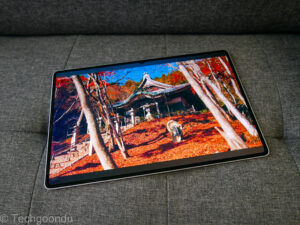There has been some discussion lately about Dawn Of War 2 and how it is sucky becoz we have to install Steam to play the single player campaigns even. Here’s something I wrote recently on this issue.
IT JUST does not make sense that a single-player PC game, which you play on your own, would require you to have an Internet connection for you to play against the computer.
However, that is exactly the case with the just-released Dawn Of War 2 (DOW2).
As I was tearing the shrinkwrap off the box of this THQ-published title, I was surprised to see these words in red: Internet Connection Required.
Initially, I thought it just needed me to activate the game over the Internet, which is common for games and business software today to combat piracy.
It turns out that I could not even launch the game without logging on to Steam, a games download and online multiplayer game-matching service. It is also used as an authentication system to fight piracy.
Which brings us to the real reason why you are being asked to log in to Steam before you run the game: THQ wants to protect its game from the unbridled world of piracy.
In the past, only games released by Valve – Steam’s owner – would make use of Steam. Titles included Half Life 2 and the recent Left 4 Dead. And now, DOW2, of course.
THQ is certainly not the first to take this anti-piracy path. Electronics Arts wanted to limit each copy of Spore to three installations and later increased it to five after the gaming community complained.
At first sight, these moves seem to make sense because the PC games business, like the music CD business, is being torn asunder by illegitimate copying. Scores of games publishers now will only fund “cross-platform” games which can be released on PC, Xbox 360 and the PlayStation 3.
Console games are growing because they are harder to pirate and users do not have to keep upgrading their graphics cards and processors and download the latest drivers to make sure their new PC game will run on their old machine.
According to a Pricewaterhouse Coopers report titled Entertainment And Media Outlook 2008-2012, consumers worldwide spent
US$24.9 billion (S$38.15 billion) on console games in 2007. However, the figure was only US$3.8 billion on PC games.
There is a legitimate workaround – you need to log-in to Steam and then keep it running in your computer in offline mode. However, you would still need to log in first for the very first time. Plus, it is not apparent that you can do this so I had to trawl the Internet to find the solution.
It is also hard to pass the game to my friend because my Steam account is locked to the unique activation code in my copy of the game. Therefore, I would have to share my personal user ID and password with my friend for him to be able to play my copy of the game. And when the game servers are full on Steam, I can’t log-in.
The irony is that these games will get hacked anyway and the hacked versions will run without all the copy-protection inconveniences.
Why is THQ making it so inconvenient for legitimate buyers who are forking out good money instead of downloading it illegally? Won’t this just alienate the real supporters of the PC games industry and tip the fence-sitters to the side of the pirates?
Or, they could do what I did: Forget about Steam and the constant need to upgrade my graphics card and processors. I content myself with playing more console games these days.
Either way, the PC game makers end up the losers.
http://www.rednano.sg/sfe/pastnews.action?&querystring=Oo%20Gin%20Lee&pubid=ST&sort=D





Yet another example of how DRM hurts legitimate consumers while doing precious little to stop piracy. I think another factor in the “Internet Connection Required” clause is customer data. Forcing you to log on gives the developer precious data on what you’re doing and when you’re doing it, and knowledge is power (and money).
I think us pc should start to boycutt all hardware companies who support consoles. You will see how fast they fix this problem.